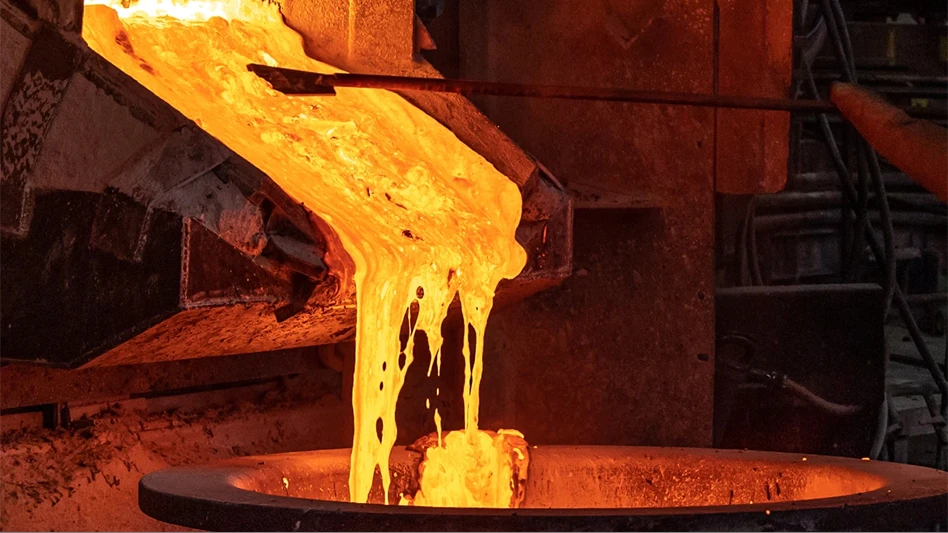
SPI: The Plastics Industry Trade Association, Washington, has released an automotive recycling report detailing the growing opportunities for recycled plastics in cars.
The association issued “Automotive Recycling: Devalued is now Revalued” at its inaugural Re|focus Recycling Summit & Expo, April 25-27, in Orlando, Florida. The report highlights innovative uses of recycled content, achievements in zero waste in manufacturing and promotes increased recycling of plastic automobile parts. Automotive recycling is leading other industries, with 95 percent of automobiles recycled at the end of their practical lives, according to the report.
The recycling of plastic materials in automobiles, however, is in its infancy. SPI says this new report aims to increase communications and cross-collaboration to identify hurdles and solutions to achieve increased recycling by working with the full supply chain—from resin suppliers and equipment manufacturers to processors, brand owners and recyclers.
The opportunities for recycled plastics in cars are abundant, SPI says. Each year in the U.S., approximately 12 million to 15 million vehicles are scrapped, with an increasing number of those vehicles containing more plastic components and parts. Recycling of postindustrial plastics from cars already is happening at automotive plants, as manufacturers have become leaders in managing their scrap to reduce waste, SPI says. Increasingly, automotive companies are using postindustrial and postconsumer recycled material throughout their vehicles.
“There is an opportunity for recycled plastics in the automotive sector, and we are hoping to merge key learnings from all members of the supply chain together to learn how we can best promote and grow plastics recycling in the automotive industry,” says Kim Holmes, SPI senior director of recycling and diversion.
SPI and its members say more can be achieved within the automotive sector in recycling automotive plastics at the end of their lives. SPI has two projects underway to help close the loop on auto plastics.
First, the Zero Net Waste (ZNW) recognition program assists the plastics industry in managing waste in manufacturing by offering specific tools to evaluate waste reduction opportunities and maximize landfill diversion.
Second, in a separate recovery effort, SPI members have begun a collaborative research project to explore the viability of collecting and recycling auto plastics from end-of-life vehicles and build a basic recovery model for whole parts before shredding. The review will help determine the feasibility of recovery today pared against material performance and demand for recycled thermoplastic olefins (TPO) and polypropylene (PP). If successful, this project will serve as a launching point to explore the opportunity to recover additional plastics, both through whole parts recovery and eventually auto shredder residue (ASR).
The report is the second automotive-focused publication in SPI’s Plastics Market Watch series, launched last year, which studies economic, demographic, consumer and technology trends in specific plastics end markets. The series includes four reports: Automotive & Transportation, Plastics in Healthcare & Medical Devices, Plastics in Packaging, and Plastics in Building & Construction. This report also contains guidance and input from members of the SPI Recycling Committee and the Transportation & Industrial Plastics Committee.
“From resin suppliers and equipment makers to processors and brand owners, SPI is proud to represent all facets of the U.S. plastics industry,” says William R. Carteaux, president and CEO, SPI. “Our most recent economic reports show that the plastics industry as a whole is resilient, and has come through the recession significantly better than other U.S. manufacturing sectors.”
Founded in 1937, SPI: The Plastics Industry Trade Association promotes growth in the $427 billion U.S. plastics industry. Representing nearly 1 million American workers in the third largest U.S. manufacturing industry, SPI says it delivers legislative and regulatory advocacy, market research, industry promotion and the fostering of business relationships and zero waste strategies.
The association issued “Automotive Recycling: Devalued is now Revalued” at its inaugural Re|focus Recycling Summit & Expo, April 25-27, in Orlando, Florida. The report highlights innovative uses of recycled content, achievements in zero waste in manufacturing and promotes increased recycling of plastic automobile parts. Automotive recycling is leading other industries, with 95 percent of automobiles recycled at the end of their practical lives, according to the report.
The recycling of plastic materials in automobiles, however, is in its infancy. SPI says this new report aims to increase communications and cross-collaboration to identify hurdles and solutions to achieve increased recycling by working with the full supply chain—from resin suppliers and equipment manufacturers to processors, brand owners and recyclers.
The opportunities for recycled plastics in cars are abundant, SPI says. Each year in the U.S., approximately 12 million to 15 million vehicles are scrapped, with an increasing number of those vehicles containing more plastic components and parts. Recycling of postindustrial plastics from cars already is happening at automotive plants, as manufacturers have become leaders in managing their scrap to reduce waste, SPI says. Increasingly, automotive companies are using postindustrial and postconsumer recycled material throughout their vehicles.
“There is an opportunity for recycled plastics in the automotive sector, and we are hoping to merge key learnings from all members of the supply chain together to learn how we can best promote and grow plastics recycling in the automotive industry,” says Kim Holmes, SPI senior director of recycling and diversion.
SPI and its members say more can be achieved within the automotive sector in recycling automotive plastics at the end of their lives. SPI has two projects underway to help close the loop on auto plastics.
First, the Zero Net Waste (ZNW) recognition program assists the plastics industry in managing waste in manufacturing by offering specific tools to evaluate waste reduction opportunities and maximize landfill diversion.
Second, in a separate recovery effort, SPI members have begun a collaborative research project to explore the viability of collecting and recycling auto plastics from end-of-life vehicles and build a basic recovery model for whole parts before shredding. The review will help determine the feasibility of recovery today pared against material performance and demand for recycled thermoplastic olefins (TPO) and polypropylene (PP). If successful, this project will serve as a launching point to explore the opportunity to recover additional plastics, both through whole parts recovery and eventually auto shredder residue (ASR).
The report is the second automotive-focused publication in SPI’s Plastics Market Watch series, launched last year, which studies economic, demographic, consumer and technology trends in specific plastics end markets. The series includes four reports: Automotive & Transportation, Plastics in Healthcare & Medical Devices, Plastics in Packaging, and Plastics in Building & Construction. This report also contains guidance and input from members of the SPI Recycling Committee and the Transportation & Industrial Plastics Committee.
“From resin suppliers and equipment makers to processors and brand owners, SPI is proud to represent all facets of the U.S. plastics industry,” says William R. Carteaux, president and CEO, SPI. “Our most recent economic reports show that the plastics industry as a whole is resilient, and has come through the recession significantly better than other U.S. manufacturing sectors.”
Founded in 1937, SPI: The Plastics Industry Trade Association promotes growth in the $427 billion U.S. plastics industry. Representing nearly 1 million American workers in the third largest U.S. manufacturing industry, SPI says it delivers legislative and regulatory advocacy, market research, industry promotion and the fostering of business relationships and zero waste strategies.
Latest from Recycling Today
- EPR implementation working group adopts nationwide focus
- CPM Crown to open European operations hub
- Mardi Gras sustainability initiative collects 14K pounds of recyclables
- Reju selects site for French textile recycling facility
- Hydro’s earnings decrease year over year
- Republic Services appoints Ian Craig to board of directors
- Phoenix Public Works Department proposes solid waste rate increases
- REalloys adds general to executive ranks





